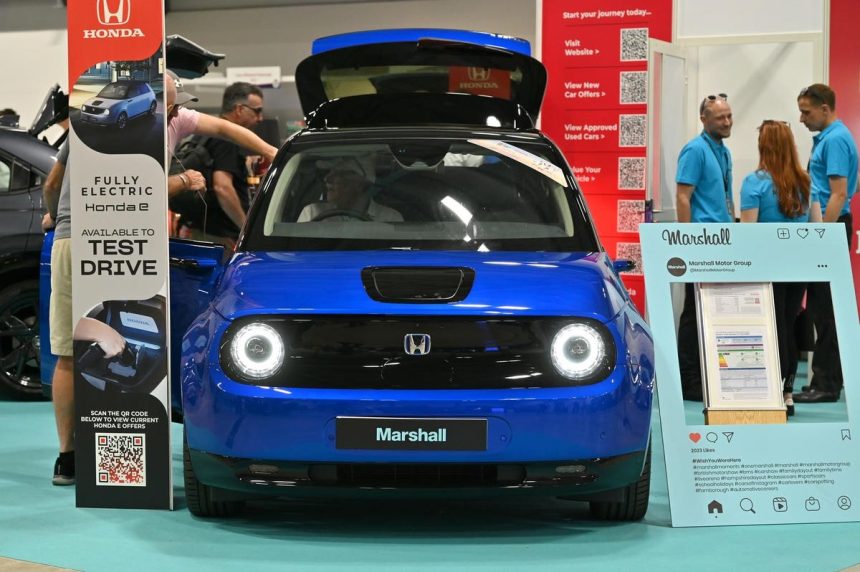Japan’s second-largest automaker, Honda Motor stock (NYSE: HMC), has seen its stock outperform this year, rising by almost 60% year-to-date. Honda is seeing its volumes recover after a mixed couple of years. Over Q1 FY’24 Honda sold 901,000 vehicles, up from 815,000 a year earlier, driven by stronger uptake in the United States, with production also picking up as the semiconductor shortage and supply chain constraints also eased. Motorcycle sales also rose to 4.5 million, up from 4.2 million in the year-ago quarter led primarily by higher sales in Indonesia. Earnings over Q1 were also stronger, coming in at 219.06 yen per share (about $1.50), with revenue growing by 21% year-over-year to 4625 billion yen ($31.6 billion). Operating margins over the last quarter expanded to 8.5%, up from 5.8% in the year-ago quarter.
Notably, HMC stock had a Sharpe Ratio of 0.2 since early 2017, which is lower than the figure of 0.6 for the S&P 500 Index over the same period. Compare this with the Sharpe of 1.2 for the Trefis Reinforced Value portfolio. Sharpe is a measure of return per unit of risk, and high-performance portfolios can provide the best of both worlds.
Honda’s performance is clearly improving, and its outlook is also looking better. The company expects vehicle sales of 4.35 million units for this year, up from 3.69 million vehicles over FY’23. There are some macro trends that could benefit Honda and other automakers with the commodity price environment improving with inflation cooling off. This, coupled with strong demand, should help Honda’s overall revenues and profitability over FY’24.
Honda’s valuation is not exactly expensive with the stock trading at about 10x projected FY’24 earnings. However, we do have concerns regarding the company’s longer-term prospects, given its late entry into the EV space. While Honda has indicated that it intends to launch 30 electric models by 2030 by investing about 5 trillion yen (about $38 billion), the company’s current mix of EV sales is very small. As the market pivots from engine-based vehicles to EVs, it’s possible that Honda could lose share, particularly to Chinese producers who are seeing a surge in demand for their electrified vehicles. In fact, over Q1 FY’24, Honda indicated in its commentary that sales in China shrank 5% year-over-year due to “intensified competition in the growing new energy vehicle market.” Moreover, Chinese-made vehicles are increasingly accepted globally, with China poised to become the world’s largest car exporter this year, overtaking Japan. This could pose a threat to EV laggards such as Honda. We value Honda stock at about $32 per share, which is 10% below the current market price. See our analysis of Honda Valuation for more details on what’s driving our valuation for Honda. Also, see our analysis of Honda Revenue for more details on Honda’s key revenue streams.
Invest with Trefis Market Beating Portfolios
See all Trefis Price Estimates
Read the full article here




